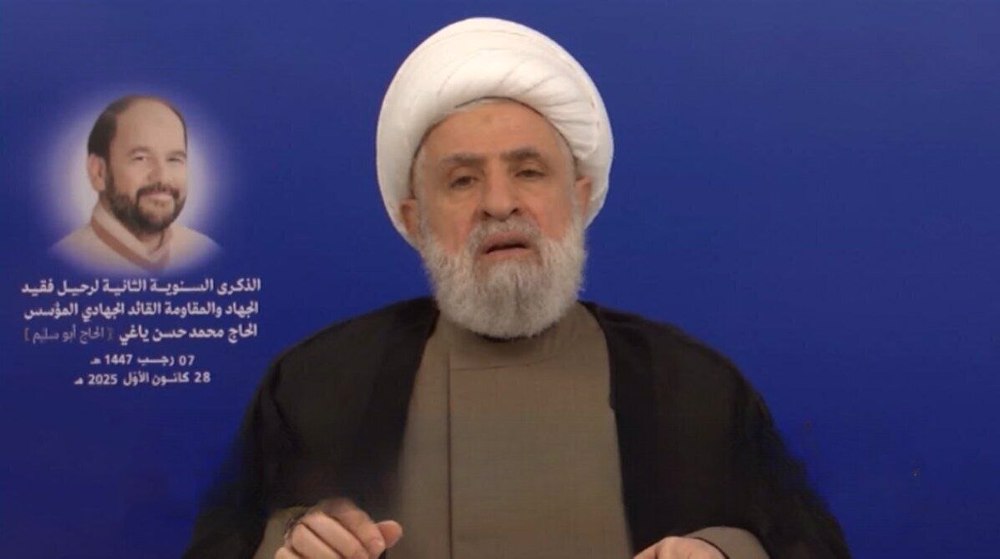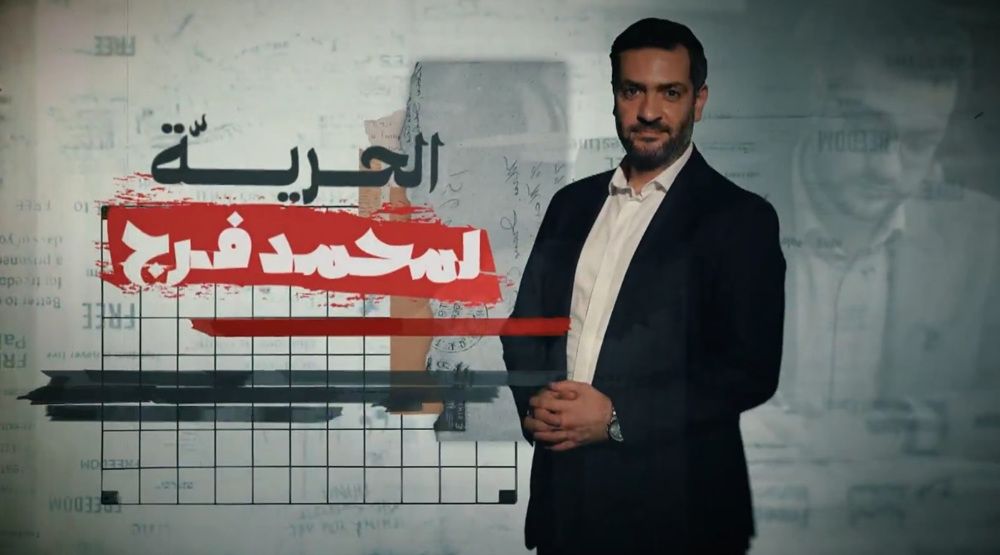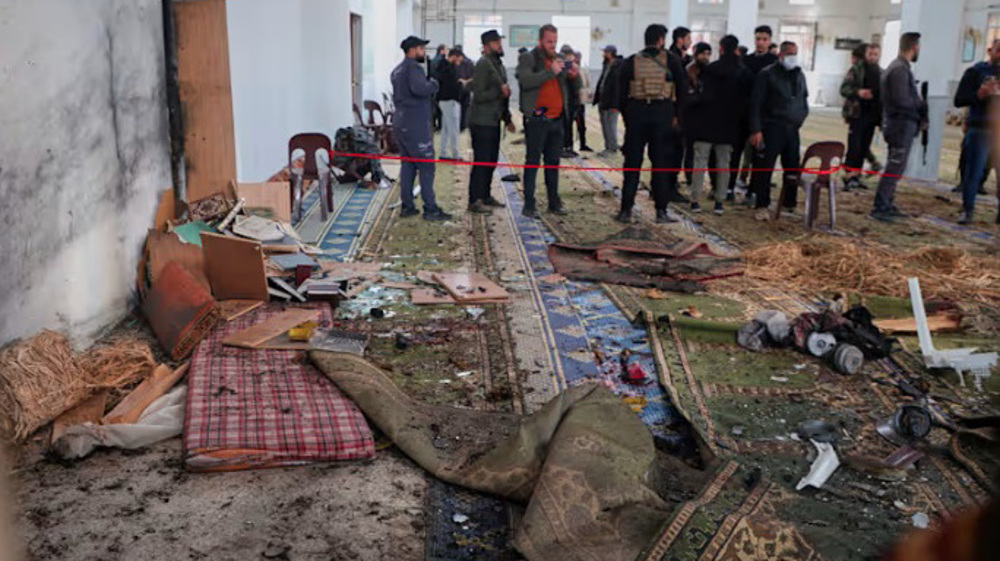Nasrallah hails Hezbollah slain military commander
The leader of the Lebanese resistance movement Hezbollah, Seyyed Hassan Nasrallah, heaps praise on the movement's military commander Mustafa Badreddine, who was killed in Syria last week, saying he was a front-runner in the fight against Israel.
"Badreddine played a key role alongside [his predecessor] Imad Mughniyeh... in the 2006 war against Israel before assuming several responsibilities including the dismantling of Israeli spy networks," Nasrallah said in a televised speech on Friday.
Nasrallah was speaking to mark one week after Badreddine was killed.
He said Badreddine was tasked with overseeing Hezbollah's security and military units in Syria since Takfiri militants initiated a war there in 2011.
Hezbollah fighters are combating alongside the Syrian government forces against a range of terrorist groups operating in the war-torn Arab country, including Daesh and the al-Qaeda-affiliated al-Nusra Front.
The Hezbollah leader said Badreddine was initially directing the Syria operation from Lebanon, but later “insisted” on traveling to Syria to oversee in person the sensitive operation.
Nasrallah said Hezbollah was against Badreddine’s presence in Syria as the group knew of the media controversy that would arise of his involvement in the war.
He noted that Badreddine’s presence in Syria helped Hezbollah prevent the fall of the country “into the hands of Takfiris and their American masters and spies in the region.”
The 55-year-old Hezbollah commander led Hezbollah's military wing which is helping the Syrian government drive out foreign-backed Takfiri terrorists from Syria.
Badreddine also directed military operations against the Israeli invasion of Lebanon and was a frequent target of attempts by Tel Aviv, Washington and its allies to assassinate or capture him.
He was the cousin and brother-in-law of Imad Mughniyeh, who was assassinated by Israel in 2008.
He said Hezbollah has not entirely ruled out Israel of having a hand in Badreddine’s killing, but the group has not found any clues during the probe that could directly hint at Israel’s role.
Nasrallah denied speculations raised in some Arab media that Hezbollah did not assign blame on Israel for Badreddine’s killing because it wanted to escape responsibility for retaliation, saying throughout 34 years of confrontation with Israel, the regime in Tel Aviv has never doubted the genuineness of Hezbollah pledges for carrying out such retaliations.
“Our history is a proof that when we vow to retaliate we honor our pledges,” Nasrallah said, adding that Hezbollah would not stand on ceremony to openly blame Israel for perpetrating a crime when the evidence exists.
Nasrallah said Badreddine’s murder came at the hands of Takfiri groups and was orchestrated by those actively seeking to undermine the resistance front, including the United States.
He said, however, that the death of the commander would not lead to Hezbollah withdrawing from Syria. “Badreddine's blood will push us to a bigger presence in Syria... We will remain in Syria and more leader will go into Syria,” Nasrallah said.
Storms destroy 90 percent of displacement tents in Gaza, authorities say
VIDEO | Press TV's news headlines
VIDEO | The political project behind a billion-dollar fortune
Egypt says it rejected huge financial offers to accept Palestinian displacement
VIDEO | Iran launches 3 satellites into orbit aboard Russian Soyuz rocket
Ukrainian forces should retreat from Donbas for peace to happen: Russia
Abu Obeida: Masked Hamas spokesman who became voice of Gaza’s resistance
Qassam Brigades confirms martyrdom of its spokesman Abu Obeida










 This makes it easy to access the Press TV website
This makes it easy to access the Press TV website